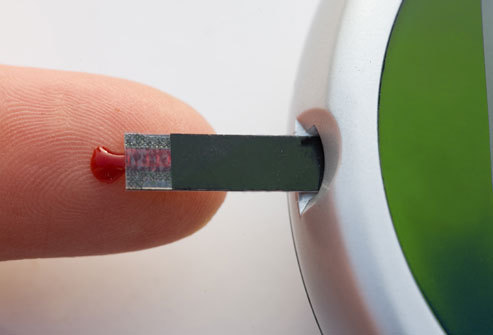
Most Americans possess amazing amounts of idiosyncratic knowledge. Sports. Poker. Cars. Music. People belong to book clubs, fantasy sports leagues and devoutly watch cable networks devoted solely to food. I have friends who can throw out stock market quotes or lines from classic films quicker than Joel Osteen can recite a passage from the Bible.
Unfortunately, the majority of these people know very little about their own health and well-being, especially relating to diet, nutrition and exercise. I'm very comfortable making this criticism, because I was equally oblivious until a few years ago when I began feeling terrible physically and experienced uncontrollable weight gain. I eventually went to the doctor and was diagnosed with Type 2 diabetes.
According to the American Diabetes Association, nearly 30 million children and adults in the United States -- 8.3 percent of the population -- have diabetes, and these numbers are growing. I looked at three pages of the ADA's basic diabetes statistics, and they are frightening. This is a disease growing at epidemic proportions, yet most people don't understand exactly what it is, how it affects us and -- most importantly -- why we get it.
Type 2 is the most common form of diabetes, and according to the U.S. National Library of Medicine, "When you have Type 2 diabetes, your fat, liver, and muscle cells do not respond correctly to insulin. This is called insulin resistance. As a result, blood sugar does not get into these cells to be stored for energy. When sugar cannot enter cells, high levels of sugar build up in the blood. This is called hyperglycemia." If left unchecked, it can eventually damage nerves and blood vessels, eventually leading to stroke and heart disease. My mother was a diabetic, so I can attribute genetics as one reason for my diabetes, but I've come to realize that my poor eating habits played a far more significant role.
For years I lived under the misconception that I was following a healthy diet, yet the exact opposite was true, especially at breakfast. I ate what I thought were healthy cereals (the commercials said so!) plus orange juice along with a bagel or a muffin. So, my day began with sugar-laden cereal packed full of refined carbohydrates (which turn into pure sugar) followed by more bad carbs (bagels, muffins) that further overloaded my body with sugar. I never gave this much thought because exercise was a big part of my life and for a long time I had youth on my side. While the rest of my daily diet included fish, chicken or meat there was always plenty of pastas and bread, which I believed I needed to fuel two workouts per day. Boy, was I wrong.
After my diagnosis, the doctor prescribed Metformin, an oral diabetes drug, to help manage my blood sugar, along with a general suggestion that I follow a healthier diet. Doctors don't prescribe diets, and my primary caregiver is a heart specialist, so I began my own diabetes research, which helped change my life. I quickly determined that fad diets, books, pills and vitamins promising a magic cure or easy weight loss don't work. We are all unique and respond to particular foods differently. I read a book that claimed as a diabetic I should never eat a banana, yet the author of this tome has never met me or seen my blood work, nor do they know anything about my daily routine. (I eat a banana nearly every day.) To further understand my reactions to food and exercise, I check my blood pressure and blood sugar on a daily basis.
We have a tremendous amount of information at our fingertips, and I take advantage of this by using twitter to follow the Joslin Diabetes Center, Diabetic Central and Novo Nordisk, all of which supply me with helpful information about diabetes and obesity. I've come to realize that people can spend less time per week learning about themselves and their health than it takes to watch a sporting event, yet most of them don't. Tinkering with your diet and your exercise regimen by reading informative articles may take some time and effort but the results will be worthwhile. I have experienced significant weight loss and have maintained it since my diagnosis.
I have also learned to read food labels (especially on cereal boxes) to find out if they are sugar free and how many carbohydrates (and other bad stuff) they contain. I eat only three types of cereal: oatmeal, Uncle Sam's and Ezekiel plus a hard-boiled egg (or two) for breakfast. Changing my breakfast has had the greatest impact on my overall health and weight loss, but exercise and mindful eating habits are equally important.
Books, seminars and the internet have helped me immensely, but none of them offer an easy cure. I am not a doctor, nutritionist or a fitness guru. I'm a regular person with a job, family commitments and time constraints like everyone else. Managing one's own health is a process requiring time and effort, but it's for something very important -- your own well-being.

